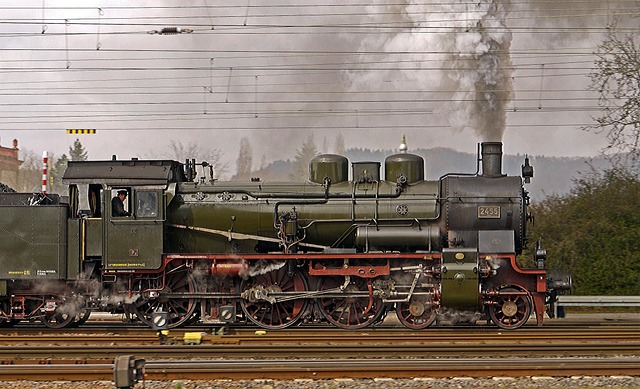The major European countries were still wary of one another following the War of the Austrian Succession, the Treaty of Aix-la-Chapelle was actually more of a ceasefire than a formal peace agreement. The Austrian Empress Maria Theresa was enraged by the loss of the wealthy province of Silesia to Frederick II of Prussia and sent her chief minister, Count Wenzel von Kaunitz, to look for potential partners in an effort to reclaim her lost provinces. England, a recent ally of hers, had been courting Frederick in an effort to protect the domains of Hanover, which were the source of the English royal family. France, Austria's long-time foe, was suddenly terrified of Prussia's rising dominance and wanted to expand its influence into the Netherlands.
He accepted England's friendship offer despite the fact that they only had a little force at their disposal to support him if he came under pressure from all sides.
However, Frederick thought (in vain, it turned out) that an agreement between England and Russia would prevent Russia from approaching him. Through his spies, Frederick learned of Kaunitz's conversation and concluded that a preemptive action was required. A French attack was definitely conceivable given that his English allies were already engaged in conflict with France over their North American territories. Maria Theresa's evasive responses to his requests for promises against attack gave Frederick all the pretext he needed to start fighting.
The best army and perhaps the brightest military genius in Europe belonged to Frederick. Even if the combined forces arrayed against him were greater than his 150,000-man army, it was at least as good as any of them taken separately. At the end of August 1756, he launched an offensive on Saxony and quickly took control of the region. He obtained records that demonstrated Maria Theresa's conspiracy against Prussia and made them public. She despatched an army from Bohemia to confront him, and on October 1st, Frederick won the opening fight of the conflict at Lobositz. He went back to seize the last Saxon stronghold at Pirna, added the 14,000 prisoners to his army, declared Saxony conquered, and used the money from the region to fund the war. He stayed in Dresden for the winter.
The monarchs of Europe joined forces with Austria to denounce Prussian aggression. Only the English remained at Frederick's side, and even they only supported him half-heartedly; William Pitt, Frederick's biggest ally in England, was fired as chief minister and later reinstated. Frederick's 145,000-man army confronted a combined force of more than a third of a million soldiers while waiting for England's financial (and minimal military) backing. He had to prevent them from fusing together if he wanted to survive. Over the course of the following six years, Frederick faced several enemies by marching and countermarching, earning the title "the Great." He did not come by his title lightly.
In 1759, the Prussians faced many challenges. Frederick marched to confront a Russian threat to Berlin after leaving a holding force outside Dresden to keep Daun at bay. The Prussians were finally overpowered and routed at Kunersdorf after a fierce struggle, but Frederick rallied the survivors and marched them back toward Berlin. He looked about but couldn't find any Russians because supply issues had forced them retreat, so he again faced Daun. For the winter of 1759–1760, Frederick landed at Dresden too late to prevent Austrian occupation.
The kings reluctantly started to discuss peace. The French made peace with Britain in exchange for Caribbean islands because they no longer had a navy, their North American territories, or much money. With the support of certain concessions won by Spain, which had helped France a little, Austria was left on its own with 100,000 Turks in Hungary. Frederick responded to Maria Theresa's call for peace, and in February 1763 they signed a treaty. The only direct political outcome of a war that was started solely for political motives was a return to the pre-bellum situation. In addition to incurring massive debt, Austria permanently lost Silesia.
The German kingdoms that had for ages begrudgingly rendered homage to the Holy Roman Empire started to drift toward Prussian dominance after Maria Theresa exchanged the title of Holy Roman Empress for that of empress of Austria- Hungary. Despite losing 120,000 soldiers, Russia obtained a seat in European councils and started the process of dividing Poland. Due to the fact that the majority of the war was fought on its soil, Prussia gained the most in terms of political esteem but suffered the most amount of territorial destruction. Out of a starting population of 4-5 million, Frederick said over 180,000 soldiers died in battle or in captivity; the total loss to the nation was 500,000 persons. Britain exited the war with more land but considerably less money.
The military-industrial complex was going to be established as a result of a new economic perspective brought about by the conflict, which held that large armies required vast quantities of supplies. In light of the futility of worldly existence, the experience of devastation caused a pessimism that led to a revival of religious faith. Additionally, the Protestant faith was ultimately protected in central Europe because an Austrian triumph might have resulted in a forced conversion to Catholicism, similar to what had happened before the Thirty Years' War.

References:
Duffy, Chris, The Military Life of Frederick
the Great (New York: Atheneum, 1986); Ritter,
Gerhard, Frederick the Great, a Historical Profile
(Berkeley: University of California Press, 1970).
Posted using Proof of Brain


